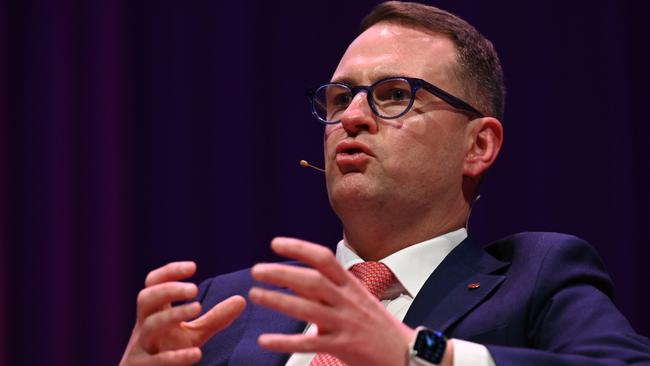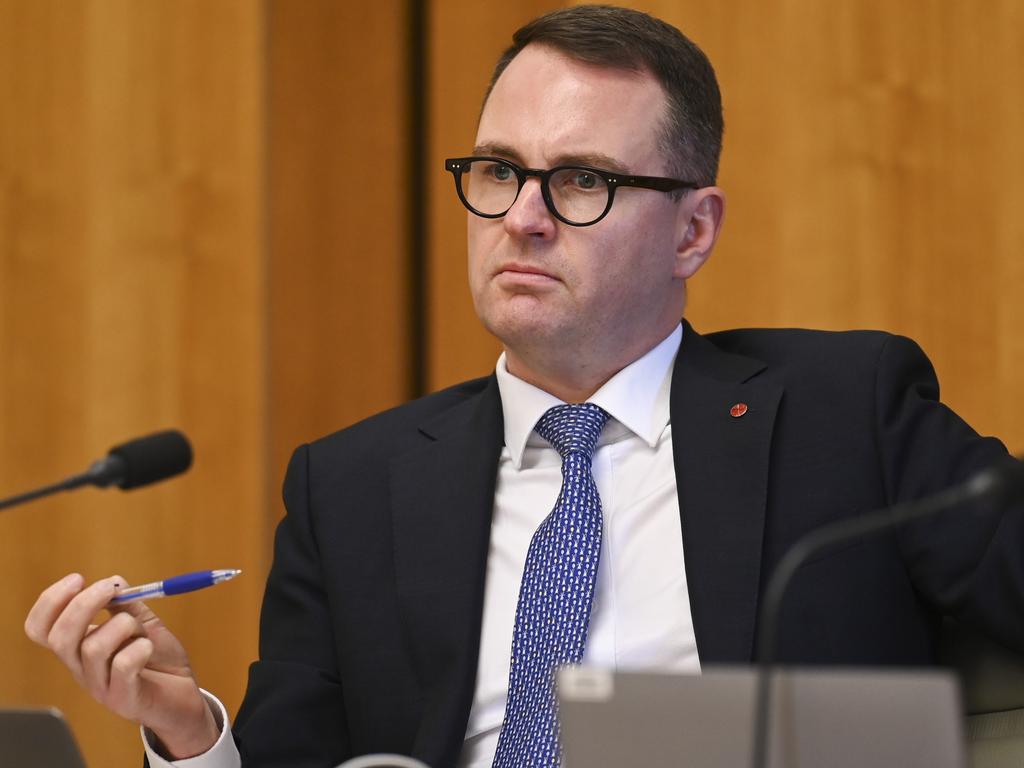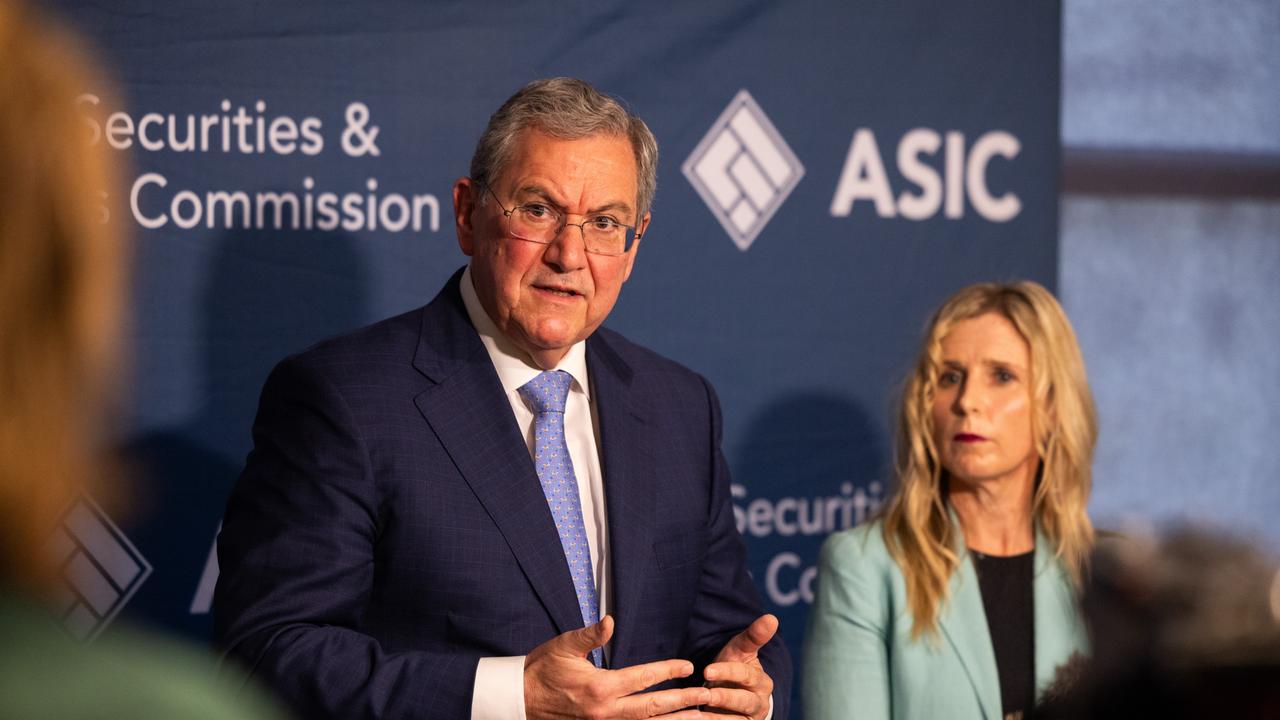Demolish ASIC and start again, says bank whistleblower Jeff Morris
Jeff Morris believes a dismantling of the corporate regulator’s structure is required to help lift its enforcement record, as trying to fix the current model won’t solve longstanding issues.

Bank whistleblower Jeff Morris believes a dismantling of the corporate regulator’s structure is required to help lift its enforcement record and improve culture, as attempting to fix the current model won’t solve longstanding issues.
Mr Morris, who blew the whistle on shoddy practices within his employer Commonwealth Bank’s financial planning division, has thrown his support behind the findings of a report into the Australian Securities & Investments Commission, by the Senate Economics Committee’s chair, Andrew Bragg. The damning report called for the break-up of ASIC into a companies regulator and a separate financial conduct authority, and also recommended the regulator be given a mandate to investigate misconduct at “an appropriate rate”.
“You can’t fix ASIC, you need to demolish it and start again,” Mr Morris said in an interview.
“Company registration is pretty administrative and vanilla … pursuing corporate misconduct you actually need some people with some fire in their belly and some ability.”
Mr Morris said that, to better police corporate crime and misconduct, ASIC needed to recruit more litigation lawyers, people who had worked in banks and investment banks, and those who understood financial planning and superannuation.
Mr Morris’s revelations about CBA’s financial planning unit helped build a case for the Hayne royal commission to be held in 2018. He exposed a lax compliance culture at CBA, including the actions of a rogue adviser, who was later banned from the industry for seven years by the corporate regulator. Mr Morris also blew the whistle on ASIC in 2013, after the regulator didn’t act on information provided to it by whistleblowers. That prompted a Senate inquiry into ASIC at the time.
Mr Morris argues that revenue provided to the government through ASIC’s companies register and fines levied obscured “how dysfunctional the corporate misconduct” unit of the regulator is.

His comments follow Senator Bragg’s report finding that only a small proportion of alleged misconduct reported to ASIC resulted in enforcement action.
While Labor members of the committee didn’t lob a dissenting report to Senator Bragg’s recommendations, released on Wednesday, they did accuse him of ignoring useful evidence and of trying to grab headlines.
On Thursday, Assistant Treasurer Stephen Jones said: “We’ll consider the report and its recommendations.”
ASIC chair Joe Longo refused a request for an interview on Thursday, but the regulator has defended its enforcement record by noting the launch of about 180 investigations in the past 12 months.
John Adams, an economist who in 2022 wrote critical reports into ASIC’s investigation and enforcement track record, said he backed the Senate committee’s call for a break-up of the regulator.
“Ordinary Australians have suffered heavily over the past 15 years by ASIC’s repeated failure to respond early and effectively to reports of alleged misconduct by conducting proper investigations and aggressively enforcing the law,” Mr Adams said. “The new regulatory architecture proposed by the committee is technically sound and is based on world’s best practice. The contribution of Associate Professor Andy Schmulow of the University of Wollongong should be acknowledged and commended.”
Senator Bragg’s report also recommended amendments to whistleblower protection provisions and consideration of compensation and financial incentives for those making important disclosures.
The report called for the establishment of a financial incentive for whistleblowers making disclosures that resulted in a “significant public benefit”, and setting up a compensation scheme for those unable to make a public-benefit disclosure without personal detriment such as the loss of work prospects.

Mr Morris labelled the recommendations “long overdue”, given Labor had in 2019 talked about setting up a whistleblower rewards scheme and a protection authority.
“If you judge the Albanese government by what they do, not what they say, you’d have to say they’ve chosen to go to war with whistleblowers,” he said, noting the jailing this year of former military lawyer and whistleblower David McBride.
“We need some meaningful protections, we need rewards, otherwise 99 out of 100 potential whistleblowers don’t come forward. It’s basically blow up your life to help other people and not many people will go for that, so corruption flourishes.”
Senator Bragg’s report was also critical of ASIC’s culture and recommended a new governance structure and code of conduct.
Former ASIC chair James Shipton agreed with that sentiment, saying: “Without the basics of good governance and accountability, poor strategy is inevitable; this is especially evident with ASIC’s enforcement strategy.”
Mr Shipton lamented ASIC’s move away from the ‘‘why not litigate?” strategy under his leadership, which he said sent conflicting messages.
The committee’s report said in recent years the regulator had been “inwardly focused and distracted” from its core functions. It also accused ASIC of declining to provide it with some requested information.
A string of senior departures at ASIC over the past two years has caused unrest at the regulator.
However, the Nicholas Moore-led Financial Regulator Assessment Authority – set up following the royal commission – did give the regulator a pass mark in 2022, after conducting its first review. But it also identified a host of issues and pointed to room for improvement in areas including ASIC’s surveillance function and timeliness in the regulator’s handling of licence applications.
The FRAA did not assess ASIC’s enforcement record in that review, instead looking at industry surveillance, licensing, strategy and decision-making.
The Senate committee report recommended the federal government reverse a decision that cut the frequency of FRAA reviews to every five years, from every two years.






To join the conversation, please log in. Don't have an account? Register
Join the conversation, you are commenting as Logout